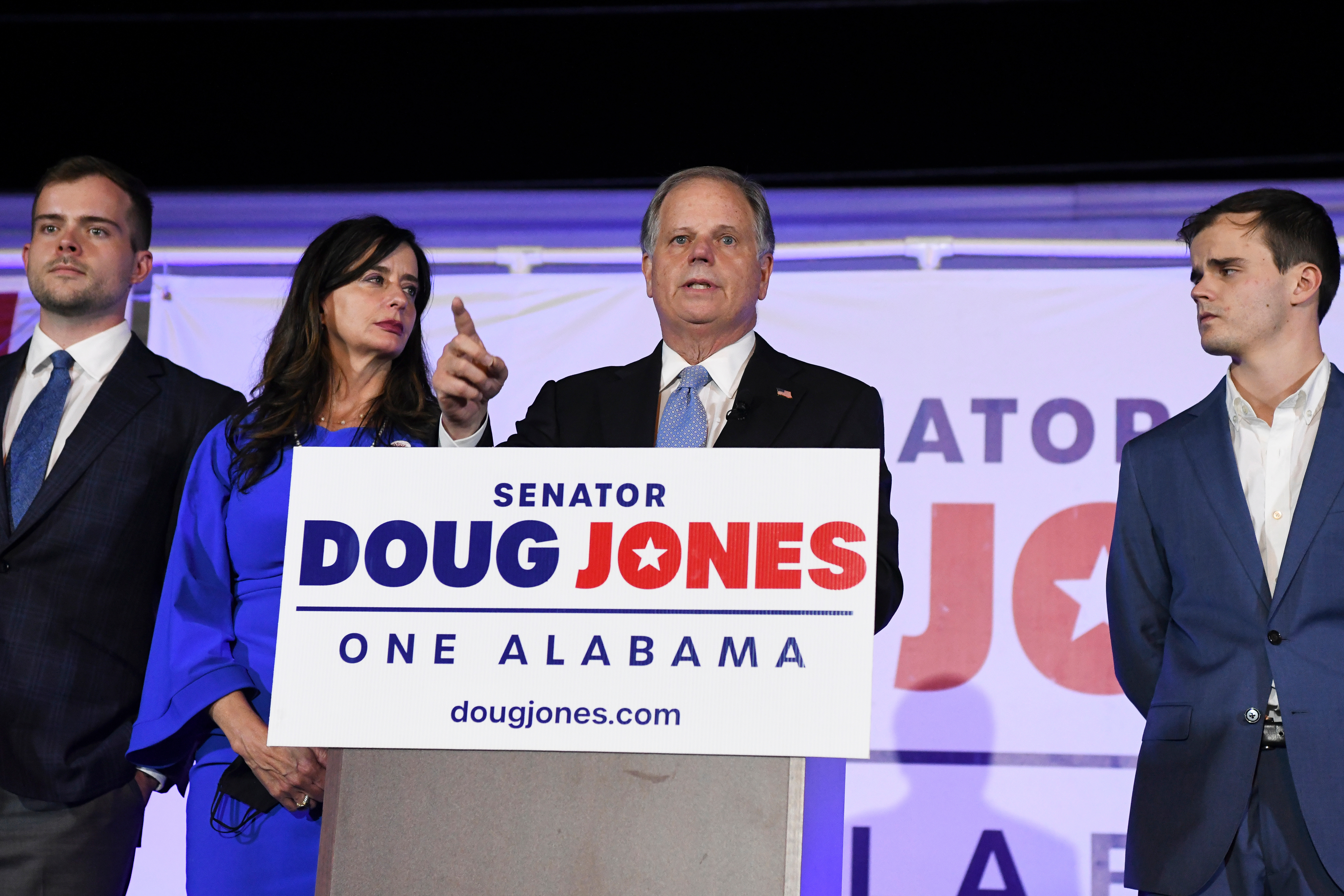DOGE wants to cut $1 trillion this year. But it’s not looking at big spending drivers
Elon Musk and his Department of Government Efficiency have an ambitious goal of cutting $1 trillion in federal spending by the end of the fiscal year in September.
But DOGE’s moves so far to cancel contracts, end leases and push federal agencies to reduce their workforces barely make a dent in the government’s overall balance sheet — even if you take DOGE’s savings claims at face value.
And as NPR has reported, those early DOGE savings claims have been inaccurate and drastically overstated.
In Congress, where decisions about trillions of dollars in spending are debated and authorized in appropriations bills, House Republicans have approved a framework that would include $4.5 trillion in tax cuts and a goal of $2 trillion in spending cuts. There are several more steps until legislation like that could get final approval.
It’s through congressional action, not DOGE, where any changes to spending and revenue collection would happen at a meaningful scale, said Jessica Riedl of the center-right Manhattan Institute.
“Think of Congress and its budget as the debt-ridden dad on the way to buy a $250,000 Ferrari on the credit card, and DOGE is the $2-off gas card he used along the way,” Riedl said. “It’s great that he saved $2 on gas, but I think his wife may be more concerned about the $250,000 car.”
DOGE’s alleged savings are a drop in the budget bucket
For every dollar that the federal government has spent so far since the start of this fiscal year in October 2024, DOGE — which began operating in mid-January — has claimed to save the equivalent of about four pennies.
From Oct. 1, 2024, through Jan. 31, 2025, the federal government collected $1.6 trillion and spent $2.4 trillion, leaving a deficit of nearly $840 billion so far this fiscal year.
As of March 3, DOGE claimed savings of $105 billion from a combination of things like lease terminations, contract cancellations and firing federal workers.
For context, that’s more than double what the Department of Homeland Security reported spending during the first quarter of this fiscal year and slightly less than what the Department of Veterans Affairs has spent on benefits and health care for millions of veterans. It’s also a third of what the government has paid in interest on the $36 trillion national debt during the first four months of the fiscal year.
DOGE’s claim of $105 billion saved in six weeks can’t be proved, however, and the “wall of receipts” that accounts for a fraction of that number is full of inaccurate data that has been revised several times for accuracy. Government contracting experts also say DOGE’s website inflates claims of “savings” by including misleading math about contract cancellations.
The White House did not respond to NPR’s questions about how DOGE calculates its savings totals or how the DOGE effort could work with Congress on federal spending.
But even DOGE’S unverifiable $105 billion number is less than half the pace of what Musk himself says is needed to meet its savings goal.
“It requires saving $4 billion per day every day from now through the end of September,” Musk said during President Trump’s Cabinet meeting last week. “But we can do it, and we will do it.”
DOGE has so far focused on things like contracting and employee head count, which account for a small slice of the government spending pie.
It recalls a similar move for Musk, who, after he bought Twitter in 2022, got rid of most of the staff. But unlike private industry, where employee salaries and benefits are the top expense, in the federal government personnel costs make up just about 4% of spending.
What’s the biggest part of the federal budget?
So far this fiscal year, about 64% of the government’s spending has been on Social Security, Medicare, health programs, income security and veterans’ benefits and services.
Add in another 14% for national defense and 13% for interest on the debt, and it’s clear what the biggest savings targets are.
Loading…
Riedl, of the Manhattan Institute, says any reduction in the government wasting taxpayer dollars is a good thing, no matter the dollar amount.
But as someone who has spent a quarter-century studying ways to cut extraneous spending, Riedl reiterates that Congress is the only place to find real savings, and even then it requires tough choices.
“DOGE has created this false perception that the entire budget deficit can be eliminated by going after waste, fraud and abuse and without making the difficult decisions elsewhere in the budget,” Riedl said. “And this exaggeration is making it even harder to do the real hard things that are going to be needed to fix the deficit beyond waste.”
Have information you want to share about contracting, spending, DOGE or other restructuring changes across the federal government? Reach out to this author. Stephen Fowler is available through encrypted communications on Signal at stphnfwlr.25.
NPR’s Bobby Allyn contributed reporting.
Auburn tabs USF’s Alex Golesh as its next coach, replacing Hugh Freeze on the Plains
The 41-year-old Golesh, who was born in Russia and moved to the United State at age 7, is signing a six-year contract that averages more than $7 million annually to replace Hugh Freeze. Freeze was fired in early November after failing to fix Auburn’s offensive issues in three seasons on the Plains.
Alabama Power seeks to delay rate hike for new gas plant amid outcry
The state’s largest utility has proposed delaying the rate increase from its purchase of a $622 million natural gas plant until 2028.
Former U.S. Sen. Doug Jones announces run for Alabama governor
Jones announced his campaign Monday afternoon, hours after filing campaign paperwork with the Secretary of State's Office. His gubernatorial bid could set up a rematch with U.S. Sen. Tommy Tuberville, the Republican who defeated Jones in 2020 and is now running for governor.
Scorching Saturdays: The rising heat threat inside football stadiums
Excessive heat and more frequent medical incidents in Southern college football stadiums could be a warning sign for universities across the country.
The Gulf States Newsroom is hiring an Audio Editor
The Gulf States Newsroom is hiring an Audio Editor to join our award-winning team covering important regional stories across Mississippi, Alabama and Louisiana.
Judge orders new Alabama Senate map after ruling found racial gerrymandering
U.S. District Judge Anna Manasco, appointed by President Donald Trump during his first term, issued the ruling Monday putting a new court-selected map in place for the 2026 and 2030 elections.








